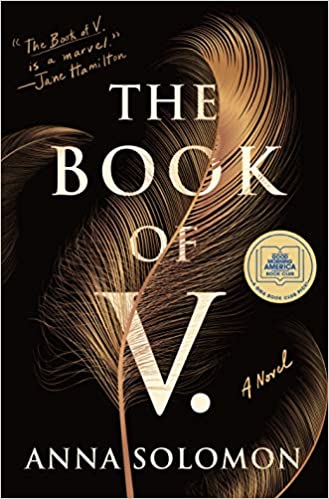
Three Characters, Three Storylines, and Three Time Periods
Yona Zeldis McDonough: How did you come up with these three intertwined but very different plot lines? Was it difficult to toggle back and forth between them?
Anna Solomon: I knew I wanted to write about Vashti but wasn’t interested in writing a realist depiction (if that’s even possible) of life in ancient Persia, and I was more interested in how the story does and doesn’t resonate with women’s lives now. So I created Vivian Barr, to live out Vashti’s story in the 70s, in the throes of the second wave women’s movement. And then I created Lily, a middle-aged mother and second wife in 2016—she’s a daughter of the feminist movement who’s not really sure what liberated looks like. At some point I decided I wanted Esther in there, too—the original second wife. And then I decided to loosely steal the structure of Michael Cunningham’s The Hours, which gave me the courage to play with a book in the way I do in The Book of V. As for toggling back and forth, I used a lot of notecards to figure out and refigure the architecture, and also a lot of instinct to figure out the beats. And there was plenty of revision, too.
YZM: In your version, Esther is seen as a sorceress, able to work magic. What’ s the basis for this interpretation?
AS: Um, no basis. I was playing with the idea of the scepter from the original a little, but mostly it’s just me, playing with power, and how women do and don’t have access to it. And how sometimes even when they have access to it, that power turns out to be limited in pretty important, even tragic ways.
YZM: The novel is also about the bonds between mothers and daughters—can you elaborate?
AS: Well, I’m always writing about this in one way or another. In The Book of V. I’m really looking at how one generation’s efforts to empower or free its daughters may wind up backfiring, or at least not going as planned, and also the pressures different generations put on each other (and not just generations, women in general) to be a particular kind of woman. A woman who works, or doesn’t work, or has kids, or doesn’t. I’m exploring how our ideas of what qualifies as “feminist” can be very narrow and intolerant and hurtful to other women. Also, what it’s like when a daughter has a daughter, which is something I’ve been lucky enough to experience. It’s beautiful, difficult, and charged.



